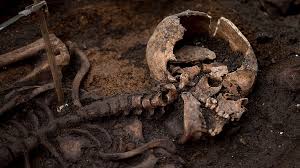Public health surveillance has traditionally relied on clinics, hospitals, and laboratories to report cases of disease. But across much of Africa, this system captures only part of the picture. Many people do not seek care, cannot access testing, or are excluded from formal health systems altogether. As a result, outbreaks are often detected late, under-reported, or missed entirely.
A recent report in Nature highlights how wastewater surveillance is changing this reality, using sewage to track disease trends at the community level, even when clinical data is limited.
What is wastewater surveillance?
Wastewater surveillance involves testing sewage for genetic material from pathogens such as viruses and bacteria. When people are infected, traces of these pathogens are shed through bodily waste and end up in wastewater systems. By analysing these samples, scientists can estimate disease circulation across entire communities, without relying on individual testing or hospital visits.
In practical terms, one wastewater sample can represent thousands or even millions of people.
Lessons from South Africa
Researchers in South Africa demonstrated how wastewater monitoring can reveal disease trends that conventional surveillance fails to capture. By comparing viral signals in sewage with reported clinical cases, they found a significant gap between actual infections and officially recorded data.
In several instances, wastewater data showed rising infection levels weeks before clinics recorded an increase in cases. This early signal is especially important in lower-income or underserved areas, where testing rates tend to be lower, and outbreaks are more likely to go unnoticed.
The findings underscore a critical reality: absence of data does not mean absence of disease.
Beyond COVID-19
While wastewater surveillance gained prominence during the COVID-19 pandemic, its applications extend far beyond one virus. Researchers are now detecting genetic material linked to:
- Measles
- Mpox
- Influenza
- Hepatitis A and E
In some cases, these pathogens were identified in wastewater even when no clinical cases had been officially reported in the area. This positions wastewater surveillance as a powerful early-warning system for emerging and re-emerging diseases.
Why this matters for Africa
Wastewater surveillance offers several advantages that are particularly relevant in African contexts:
- Equity: It captures health data from entire communities, including people who are not represented in clinical systems.
- Cost-effectiveness: Monitoring a few sites can be more affordable than mass individual testing.
- Early detection: Public health authorities can respond sooner, potentially preventing wider outbreaks.
- Genomic insight: Sequencing wastewater samples allows scientists to track variants and pathogen evolution over time.
For regions facing resource constraints, these benefits can strengthen public health decision-making without placing additional burdens on individuals.
The challenges ahead
Despite its promise, wastewater surveillance is not without limitations. It requires:
- Laboratory infrastructure and sequencing capacity
- Skilled personnel for data analysis
- Sustainable funding and policy support
Encouragingly, continental initiatives, including efforts led by Africa CDC, are working toward integrating wastewater and environmental surveillance into broader disease monitoring systems.
Where MyAfroDNA fits in
At MyAfroDNA, we believe that genomic tools should serve real-world public health needs, especially in underrepresented regions. Wastewater surveillance demonstrates how genomics can move beyond laboratories and clinics to inform population-level health decisions.
As Africa continues to invest in biospecimen science, molecular testing, and genomic research, approaches like wastewater surveillance will be essential for building resilient, inclusive health systems.
Better data leads to better decisions and better outcomes for communities.




